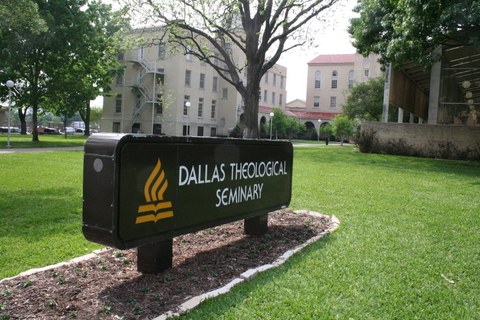Yesterday we looked at what I was taught in Bible College and Seminary about “The Canonization of Scripture.” By way of summary, Canonization is the process and standards by which the early church leaders selected which documents to include in the New Testament.
Over the next few posts, I want to question and critique what I was taught, asking the questions about Canonization that I had neither the time nor the courage to ask while in Seminary.

Before I ask these questions, I do want to make it clear that I am personally glad that the early church undertook this process. I agree with their conclusions, and I am glad that we have the 27 books of the New Testament that we do have, and no more.
Having said that, I will show in the next few posts that the process and standards of Canonization undermines nearly everything else we evangelical Christians believe about the Bible, and so we must either change our view on some of these other things (such an inspiration and inerrancy), or we must decide that the process of Canonization was wrong. But we cannot logically maintain everything we have traditionally taught about the Bible and remain consistent.
The first area I want to address is how Canonization Undermines Inspiration.
Canonization Undermines Inspiration
Evangelicals have traditionally believed that Scripture is the inspired Word of God. (Read this post for more on Inspiration.)
However, one of the standards used in the process of selecting which books to include in the Bible is that they only chose those books which had the characteristics of inspired Scripture (whatever that meant to the church leaders at the time).
Is it really fair to say that all Scripture is inspired, if only those books that seemed to be inspired were included in Scripture? Isn’t this “cheating” a little bit?
Let me ask the question a different way.
If you drove by a parking lot and it was filled with blue cars and only blue cars, would you assume that a miracle had occurred in which God has changed the color of all of those cars in that lot to blue?
Of course not. You wouldn’t think it was miraculous at all. You might not know the reason for why the parking lot is full of blue cars, but it would be clearly obvious that someone (or a group of people) had decided to fill that lot with only blue cars.

When we are talking about Scripture, the argument is similar. We say that the Bible is divine because the various books are clearly inspired. But when we see that in 397 AD, some church leaders put together 27 books which they thought had the touch of the divine upon them, we must ask if this is really a miracle of inspiration, or is it something else entirely?
In other words, the real question is, “Were these books chosen because they really are inspired, or because a group of church leaders only allowed certain books into the Bible, and called them ‘inspired’ because they had some ulterior motive?” Maybe they had a theological point to prove, or a political reason to select these 27 books, and wanted to reject others which contradicted their teachings and ideas, and so selected these 27 by calling them “inspired.”
We will see later that this is very similar to what did in fact happen.
In this case, the doctrine of the inspiration of Scripture seems to be more a matter of human selection for human reasons, rather than a matter of divine and human authorship.
Some scholars recognize this dilemma, and have proposed that God did in fact inspire the writing of these 27 books, and then God also guided the Council of Carthage in 397 AD to select these 27 books for inclusion in the New Testament.
So in other words, God inspired both the accurate writing of Scripture, as well as the accurate selection of which books to include within Scripture.
But why stop there?
In fact, some do not.

Once you have allowed God to guide the selection process of Scripture, then there is reason to restrict Him from also guiding the copying of Scripture, the translation of Scripture, and even the teaching and preaching of Scripture.
Historically, the church decided that just as God guided the writing, the accurate transmission, and the church’s decision about which texts to include in the Bible, so also, God guided the accurate translation of the texts (TNDT VI:455). This led the church to depend primarily on Latin translations for the next 1200 years. So the Canonization of Scripture by the church led the church to extend inspiration to the transmission, translation, and teaching of the biblical text.
This view looks nothing like the doctrine of Inspiration.
So what is the solution? Well, the traditional understandings of Inspiration and Canonization seem to be mutually exclusive. So one or the other (or both) must be discarded or changed. Most theologians who are aware of this problem opt to change their understanding of Canonization. I don’t have the room here to discuss some of their theories. If you are aware of these, feel free to write about them in the comments below.
My solution, however, is to allow Canonization to stay as it is, and modify my understanding of Inspiration. In this way, inspiration does not extend to the process of Canonization, nor to the transmission, translation, or teaching of the texts.
What do you think? Did I lose you? This post depends on remembering what was written in numerous previous posts (which I tried to link to above). So if I lost you, I apologize.
What do you think about the Bible you own and read? Did you realize that there were other books which did not make it into the Bible? Does that make you trust your Bible more or less? Do you think the early church leaders who chose these 27 books did a good job? We will discuss more of this in future posts.


Jeremy – I like what you’ve done here on these last two posts. Very well thought out. This is something that I struggled with when I was in seminary. The long in short for me is to not get into too much debate over the issue. The Bible that we have is what God wanted us to have. And regardless of the translation you choose to read, the same truths comes through, if we are open to the Holy Spirit’s guiding. The same goes for the Apocryphal texts as well. They may not be “inspired”, but as you probably know, are very informative and can guide us in faith issues. For example, 1 & 2 Maccabees is one of the best and only resources we have covering the history of the inter-testamental period. Overall, I think you’re right on. We have to open our minds to what inspiration actually means, and not be afraid to expand on it because of tradition. Great work!
Jake,
Thanks for the comment. Great point about the Holy Spirit. Isn’t it interesting that we sometimes trust Scripture to guide us more than we trust the Holy Spirit?
I wrestled (and still do at times) with these same issues. He let the Catholics choose our Bible? But then in seminary it was pointed out that God uses sinful people all the time. I myself have read most of the “forbidden” books like the Infancy books, Gospel of Mary, the letter to the Magnesians an the Trallians, for example. While I understand why most of those were left out (and thankfuly!!), some like the Shepherd of Hermas or the Didache are harder to figure out why. Like you’ve mentioned in an earlier post, because they either weren’t from the surrounding area of Palestine or didn’t hold Jesus Christ in high enough esteem. Even though the shepherd seems a bit mystical, from what I remember, it’s not necessarily bad, but the Biblical epistles are so much better 🙂
I am not sure I would consider the early church leaders “Catholic” the way we think of “Catholic” today since back then, there was nothing else.
There definitely are some mystical ideas in many of those books which could cause problems with lots of people and lots of theological ideas.
I know they weren’t Catholic with a big C, but at the time, all I knew of Ignatius and Clement was because they were saints in the Catholic church!
Good points, all.